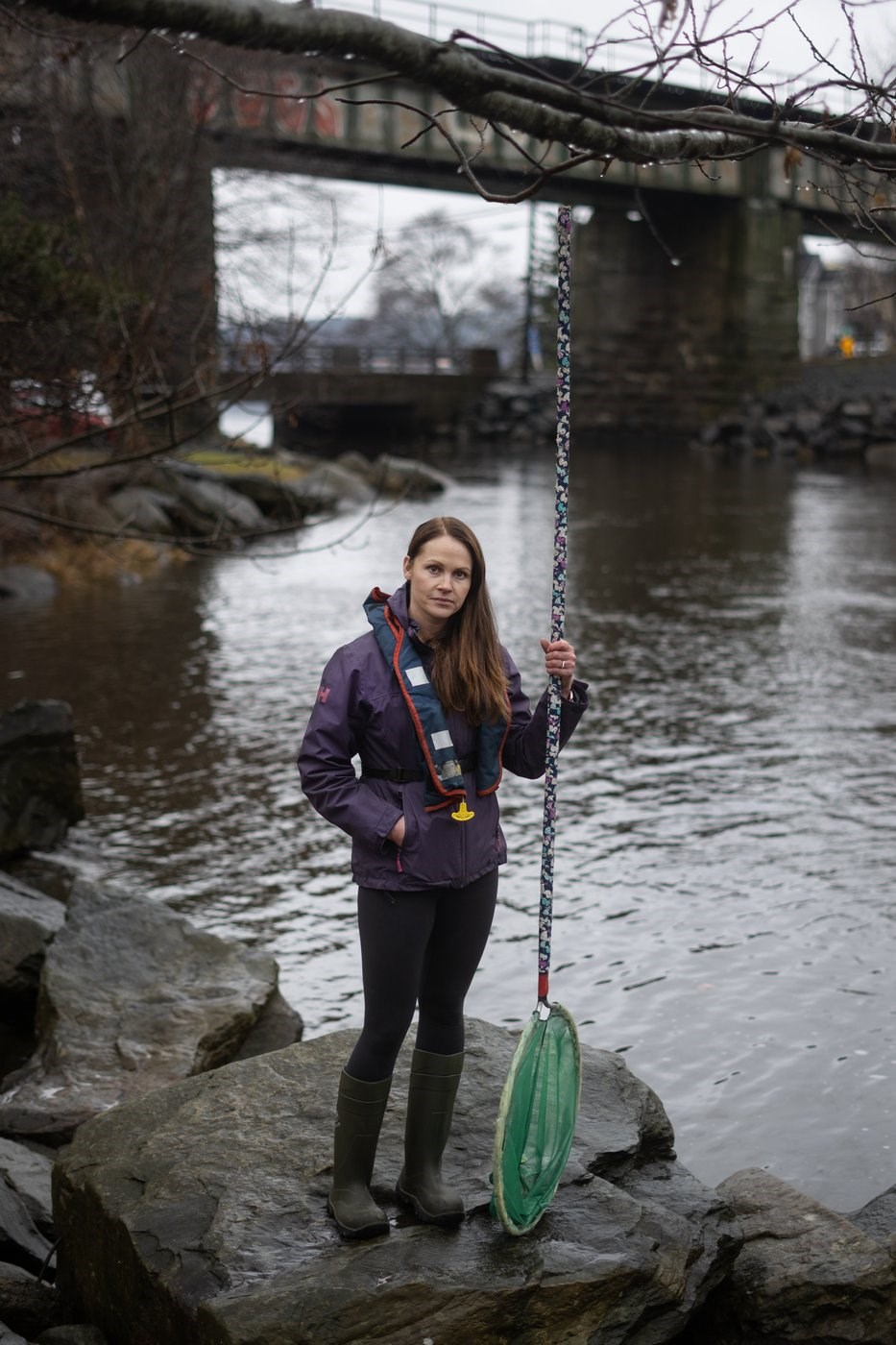HALIFAX — Two commercial fishers harvesting baby eels under new federal rules say they felt they had to stop fishing on Sunday night when a large group of Indigenous harvesters arrived at the river with nets.
Suzy Edwards, an employee of Atlantic Elver Fishery, said one of the fishers told her he was from Sipekne'katik First Nation and they were making a "statement" that they don't accept Ottawa's recently imposed system that distributed the quota for the lucrative catch.
"We can't fish basically is what we're saying," Edwards said in an interview Sunday night after the encounter. "There are too many people there and we can't go there and dip (our nets)."
Under the system, the licence holders — including the 20 First Nations who were new entrants — are given quotas based on how many people live in their communities, with rivers assigned where each licence holder is permitted to harvest the tiny eels known as elvers.
Ottawa decided last year that half of the allowed catch of 9,950 kilograms held by long-standing commercial licence holders would be transferred, without compensation, to First Nations.
Prices range for the catch, but in recent years fishers have received between $1,700 and $5,000 per kilogram for the elvers, which are exported to China and grown to full size in aquaculture operations.
Edwards and her fishing partner Alan MacHardy say that under the new system the company she works for has retained the federal licence to work on the Hubbards River.
The two had quietly fished at the site for over a week without incident, said Edwards, and as a result she and MacHardy were surprised to see the parking lot suddenly fill with trucks on Sunday evening soon after they arrived. They estimated about 50 people started setting up on the river.
MacHardy said, "even if we were to go down and dip, there's no place to do so as there's too many people .... We lost the night of fishing."
Chief Michelle Glasgow of Sipekne'katik did not respond to an emailed request for comment.
In a recent letter sent to the federal Fisheries Department, Chief Bob Gloade of Millbrook First Nation said Sipekne'katik had joined with his First Nation and two others to assert their jurisdiction and create their own elver fishing plans, which he said includes their right to choose which rivers to fish.
Gloade wrote that, based on the 1999 Supreme Court of Canada decision in the Donald Marshall Jr. case, First Nations fishers have the right to set up their own regulatory system and carry out a fishery to earn a moderate livelihood. “We are not regulated by your colonial commercial licensing schemes, nor do we accept your proposed management plan," he wrote.
However, in a March 18 letter obtained by The Canadian Press, the department's regional director general informed several First Nations that court cases support Ottawa's position that it can define quotas and fishing areas.
Doug Wentzell noted the Supreme Court had made clear in the Marshall decision that while Indigenous communities have the right to earn a moderate livelihood, Ottawa retains a role in regulating the fishery. The federal official also cited a decision by the high court establishing that fisheries conservation depends on a centralized system of controls, "and a system of controls commences with licensing."
Wentzell said the controls brought in for the elver fishery are reasonable "particularly in a fishery that has become extremely challenging to manage over the last several years."
Addressing the concerns of the Sipekne'katik chief, Wentzell wrote that his department's consultation efforts with the First Nation had met "with limited success." He said the community had been assigned five rivers where their harvesters could work, adding, "if there are other rivers of interest to Sipekne'katik for the 2025 season, the department would be pleased to consider them."
MacHardy and Edwards said they had hoped the chaos that reigned last year and forced Ottawa to close the fishery entirely was behind them.
"We felt very hopeful up until this point because people were staying away, and we said, 'Maybe this is working. Maybe the plan is working.' and we drove up today and what we saw was like a punch in the gut," Edwards said.
This report by The Canadian Press was first published March 31, 2025.
Michael Tutton, The Canadian Press




